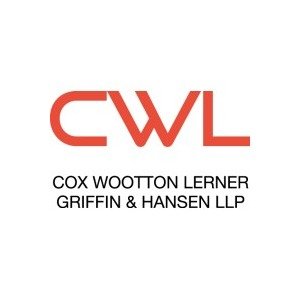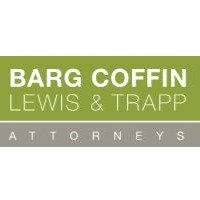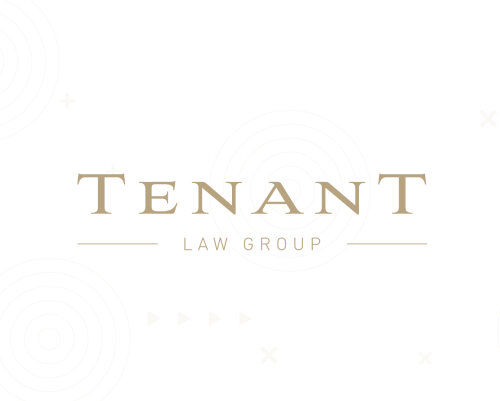Best Conveyancing Lawyers in San Francisco
Share your needs with us, get contacted by law firms.
Free. Takes 2 min.
Free Guide to Hiring a Real Estate Lawyer
List of the best lawyers in San Francisco, United States
About Conveyancing Law in San Francisco, United States
Conveyancing is the legal process of transferring ownership of real property from one person or entity to another. In San Francisco, as in other parts of the United States, conveyancing encompasses a series of steps that ensure the legal and financial interests of both buyer and seller are protected during a real estate transaction. This process typically involves preparing, verifying, and executing documents such as the purchase agreement, deed, and title transfer. Conveyancing in San Francisco must also comply with federal, state, and local regulations, all of which can impact the overall procedure and timeline.
Why You May Need a Lawyer
While some basic real estate transactions may proceed smoothly with the assistance of a real estate agent or title company, there are common situations where legal advice is essential in the conveyancing process in San Francisco. You may need a lawyer if:
- You are purchasing or selling property with complicated title issues or liens.
- Easements, encroachments, or zoning disputes apply to the property.
- There are issues with the condition of the property discovered during inspection.
- You are part of a divorce, inheritance, or trust situation involving real estate.
- The transaction involves commercial or multi-unit property.
- You are facing foreclosure, short sale, or deed-in-lieu arrangements.
- You need assistance negotiating terms or responding to disputes that arise during the transaction.
- You want to ensure that all documents are correctly drafted and legally sound.
A qualified conveyancing lawyer will help safeguard your interests, review documents, check for compliance with laws, and represent you in negotiations or court if necessary.
Local Laws Overview
San Francisco conveyancing is governed by a mix of California state property laws and local city ordinances. Some key aspects include:
- Disclosure Requirements: California mandates that sellers disclose material facts affecting the value or desirability of the property, such as natural hazards and prior repairs.
- Transfer Tax: Real estate transfers in San Francisco are subject to a city transfer tax, which is a percentage of the purchase price and is typically paid at closing.
- Rent Control and Tenant Rights: San Francisco has strict tenant protections that may impact the sale of rental properties, including requirements to disclose tenant status and provide certain notifications.
- Title Examination: Conducting a clear title search is critical, as properties in San Francisco can have unique title histories, including old liens or restrictions.
- Environmental Regulations: Local and state laws require disclosures and, in some cases, remediation of environmental hazards, such as earthquake retrofitting or lead paint.
- Property Taxes and Assessments: Buyers should be aware of property tax obligations and possible special assessments for local improvements.
- HOA Regulations: If the property is part of a homeowners' association, buyers must receive and review relevant HOA documents before finalizing the purchase.
Navigating these laws and their interplay is often complex, making professional legal advice invaluable.
Frequently Asked Questions
What is conveyancing and why is it important?
Conveyancing is the legal process by which ownership of property is transferred. It ensures the transaction is lawful, the buyer receives good title, and all parties meet their legal obligations.
Do I need a lawyer to buy or sell property in San Francisco?
While not legally required in California, hiring a lawyer is highly recommended, especially for complex transactions or when legal questions arise.
What is the average timeline for completing conveyancing in San Francisco?
Most transactions close in 30 to 60 days, but the process can be longer or shorter depending on financing, title issues, inspections, and other factors.
Who pays the closing costs?
Both buyers and sellers are generally responsible for specific closing costs, which can be negotiated as part of the transaction. In San Francisco, sellers typically pay the transfer tax.
What are common risks in property conveyancing?
Risks include title defects, undisclosed liens or encumbrances, incomplete disclosure statements, zoning violations, and boundary disputes.
How does the disclosure process work?
Sellers must provide buyers with a range of disclosures, including property condition and lead paint for homes built before 1978. Failure to do so can result in legal and financial consequences.
What happens if a title issue is discovered?
Title issues can delay or prevent closing. Your legal representative will work to resolve the issue, which may involve negotiations, payment of liens, or title insurance claims.
How does rent control affect property conveyancing in San Francisco?
If the property is tenant-occupied and subject to rent control, special rules apply for tenant rights, required notices, and buyouts, all of which can affect timing and the terms of the sale.
Can I back out of a property purchase after signing a contract?
There are contingencies, such as inspection and financing, that allow buyers to exit the contract under certain conditions without penalty. However, missing deadlines or lacking a valid reason can result in loss of deposit or legal action.
What documents are required at closing?
Typical documents include the deed, settlement statement, loan documents, affidavits, and proof of insurance. Your lawyer can review each to ensure legal compliance.
Additional Resources
If you are seeking more information or assistance with conveyancing in San Francisco, consider these resources:
- San Francisco Assessor-Recorder's Office - for property records, transfer taxes, and document recording.
- California Department of Real Estate - for information about real estate licensing and consumer rights.
- San Francisco Rent Board - for guidance on rent control, tenant rights, and property sales involving rental units.
- San Francisco Bar Association Lawyer Referral Service - to find qualified real estate attorneys.
- Local title companies and escrow services - for assistance with title searches and escrow management.
Next Steps
If you need legal assistance with conveyancing in San Francisco, start by gathering all documents related to your property transaction, such as contracts, disclosures, and any correspondence. Consider consulting with a real estate attorney who has experience with local laws and customs. You can contact local bar associations for lawyer referrals or reach out to recommended organizations listed in the resources above. Clear communication with your attorney and real estate professionals, combined with a thorough review of all documents, will help ensure a smooth and lawful conveyancing process.
Lawzana helps you find the best lawyers and law firms in San Francisco through a curated and pre-screened list of qualified legal professionals. Our platform offers rankings and detailed profiles of attorneys and law firms, allowing you to compare based on practice areas, including Conveyancing, experience, and client feedback.
Each profile includes a description of the firm's areas of practice, client reviews, team members and partners, year of establishment, spoken languages, office locations, contact information, social media presence, and any published articles or resources. Most firms on our platform speak English and are experienced in both local and international legal matters.
Get a quote from top-rated law firms in San Francisco, United States — quickly, securely, and without unnecessary hassle.
Disclaimer:
The information provided on this page is for general informational purposes only and does not constitute legal advice. While we strive to ensure the accuracy and relevance of the content, legal information may change over time, and interpretations of the law can vary. You should always consult with a qualified legal professional for advice specific to your situation.
We disclaim all liability for actions taken or not taken based on the content of this page. If you believe any information is incorrect or outdated, please contact us, and we will review and update it where appropriate.

















